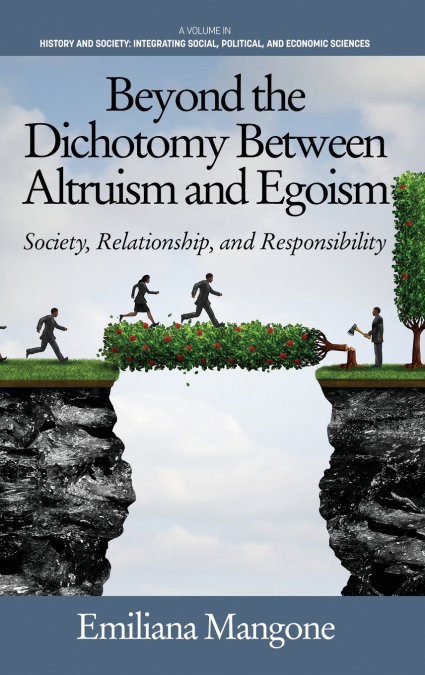
Emiliana Mangone
The birth of the social sciences and specifically of sociology begets some open questions, among which the debate on altruism and the concept of social solidarity. The term altruism was firstly used by Auguste Comte. It is one of the few terms born within the scientific field that will enter the common language roughly maintaining the same meaning. For the positivist Comte, altruism represented the powerful impulse to the intellectual and moral development of humanity to which we must strive as a future state. The term commonly means all those actions whose benefits fall on others and not on the agent (actor). In short, for Comte, altruism means "to live for others" (vivre pour autrui).The centrality of altruism as part of the reflections of social sciences can be found in many classic authors. Durkheim, for example, explains the foundations of social solidarity in modern society precisely through the opposition between altruism and egoism and defines its implications in the book Le Suicide in 1897, also identifying what will later become the main typology of suicide by contrasting altruistic suicide with egoistic suicide. Likewise, both Weber and Marx, while not using the term altruism as such, refer to it indirectly. The former, when describing the ethics of love for the charismatic authority as opposed to legal and rational authority, the latter, when corroborating his polemics against Christian charity.The interest in altruism as an object of study of social sciences, however, is progressively waning - especially in Europe. From the second half of the last century, theoretical and empirical studies show the indifference of social scientists towards this object, except for the Russian-American sociologist Sorokin, who in 1949 founded the Harvard Research Center in Creative Altruism. In recent years, however, the topic seems to take renewed vigor, especially in the United States with the birth in 2012 of the section "Altruism, Morality & Social Solidarity" within the American Sociological Association. It considered these three aspects as a single field of disciplinary specialization, since they are significantly dependent on socio-cultural reality. This is the situation in the United States. In Europe, there is a renewed interest in studies on altruism, especially in French-language sociology, above all starting from the numerous contributions to reading and re-reading work on Marcel Mauss's on gift of 1925, and in following the anti-utilitarian movement and studies of the school of social representations of Moscovici, which leads to the definition of the elementary forms of altruism.The book aims to analyze the concept of altruism starting from classical philosophy up to the systems of ideas of contemporaneity, considering the approaches and authors of reference in an interdisciplinary and transdisciplinary way. The representations of altruism and egoism in contemporary society are constantly changing, following the transformations of society itself. Having abandoned the idea that the factors leading to altruism or egoism lay only in human nature, we find them in people’s conduct, freedom, relationships, their associative forms and society. The attention is thus turned to two elements of the daily life of individuals: culture and social relations. The book tries, therefore, through the meso-theories developed in recent decades, which study the relationships between life-world and social system, to describe the links between altruism, egoism, culture and social relations.